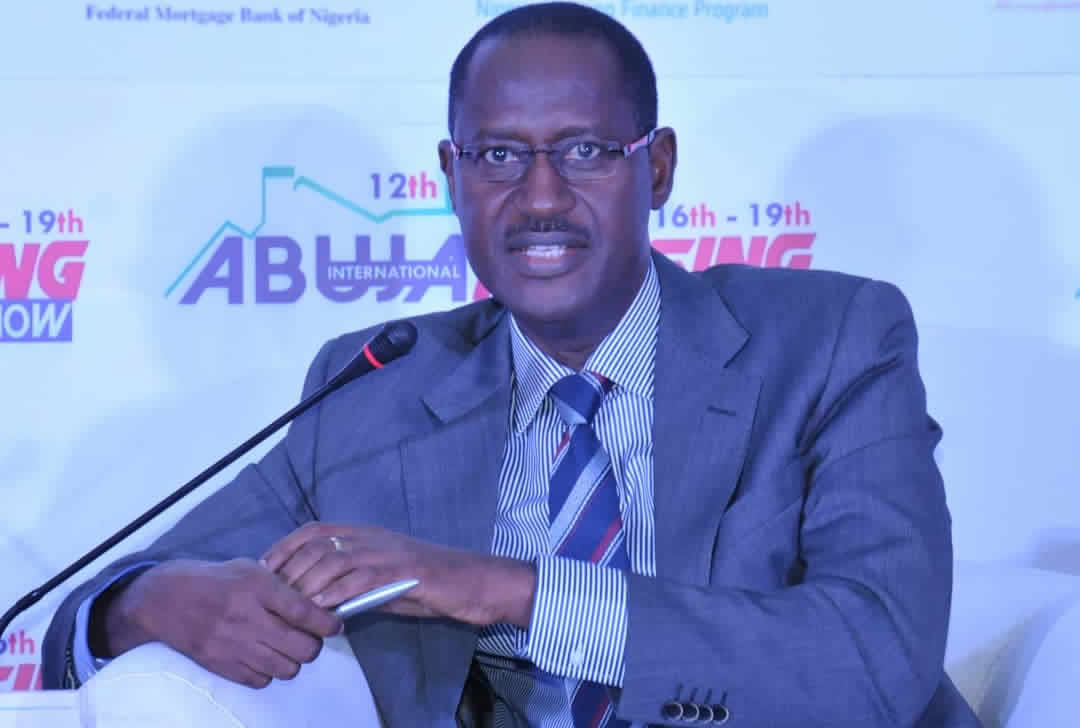The National Housing Fund (NHF) is an affordable housing scheme set up by the Federal Mortgage Bank of Nigeria (FMBN) to enable the provision of affordable mortgages and other home ownership opportunities for its contributors. But the Fund has not been without challenges, mostly due to lack of compliance.
In a chat with Housing TV on their One on One Segment in Abuja on Friday, the MD/CEO of FMBN, Ahmed Dangiwa spoke about these challenges and how the bank is coming at them.
According to him, one of the major challenges faced in the execution of the NHF is the lack of compliance and accountability on the part of employers.
‘’Naturally,’’ he said, ‘’it is the employers that should deduct these contributions from their employees and remit it to the pool of fund. Overtime we have seen employers deduct the monies without remitting. So you see contributors coming to look for their funds only to find that nothing has been remitted for them by their employers.’’
In dealing with this, the FMBN according to Dangiwa has instructed employers to remit the contributions of their employees with the schedule of payment at the end of the month.
‘’We have created a structure that can make it transparent and accountable. So any employer that is remitting must forward a schedule and once we receive that schedule we send SMS alert to the employees informing them that their employers have remitted an amount to the NHF on their behalf.
‘’Initially, some employers resisted, but we had to emphasise the need for transparency by demanding the telephone numbers of their employees. To take it further, we publicised in the news that whoever is contributing to the NHF should go to any of our branches and give their personal details including name, telephone and NHF number so that even if their employer didn’t submit these details, they will still get it a notification FMBN,’’ he said.
He also mentioned that any contributor who doesn’t get alerts about their contributions can always visit any of the bank’s offices to confirm whether their contributions are being remitted or not.
Another issue faced by the scheme according to him is the failure of commercial banks and insurance companies to invest into the fund as stipulated by its establishing act.
Dangiwa said that apart from the 2.5% of monthly salary contributions to the fund by workers, commercial banks and insurance companies are also supposed to invest into the fund, but they haven’t been doing so.
‘’Commercial banks are supposed to invest 10% of their portfolio into the NHF scheme which we will use to provide affordable mortgages,’’ he said.
To encourage them to comply, Dangiwa said that the bank is currently engaging with the banks as well as with the national assembly and the presidency to ensure compliance.
He also mentioned that insurance companies are supposed to invest 20% of their no life loan and 10% of their life insurance into the fund.
‘’They are to invest this sum and get equity in return. They have not been doing that but we have now employed the services of consultants who are following them up on that through NICON,’’ he said.
Dangiwa said that if the NHF can be funded by all parties needed to fund it, more Nigerians will have access to affordable mortgage loans and own their homes.
The National Housing Fund scheme managed by FMBN is meant to provide home ownership for low and medium income earning Nigerians. According to Dangiwa, it’s a contributory scheme for Nigerians in formal, informal, private and public sectors to contribute 2.5% of their monthly earnings into the pool of funds. It’s from this pool of funds that they provide mortgages for Nigerians. The contributions are refundable at retirement and it gives its contributors the leverage to approach the bank to get mortgage loans.
Through the National Housing Fund, the FMBN are providing loans for people to either buy, construct or renovate their own house.
For those wishing to buy their own houses, the bank gives soft loans at 6% which can be paid over a period of 30 years for a maximum of 15 million naira.
For those also intending to construct their own houses, the bank gives loans for that in any location of their choice. But that, according to Dangiwa, is only possible as long as they have a C of O, design and costing.
‘’We also give soft home renovation loan of 1 million naira, but people in the rural areas do not only use it to renovate but to even construct their own houses.
‘’We also give construction finance to developers to build houses for the NHF contributors. When they build the houses, they will bring it forward to the bank, we will choose a Primary Mortgage Bank who will package it or we go through the Rent To Own scheme.

‘’The Rent To Own is another window where once you are packaged for our funded estates, you move in and start paying your rent and at the end of the day the house becomes your own when you have completed the mortgage payment through your rent. These are some of the products the NHF provides,’’ he said.
Dangiwa said the Rent To Own package which was launched early this year is already assisting many Nigerians in accessing affordable housing.
He said, ‘’If you go to Kaduna state you will find the KSDP estate where we built up to 263 houses placed on rent to own. It was packaged by the trade union congress and Nigeria labour congress of Kaduna state. We have done same in many states of the federation.
Dangiwa added that The Rent To Own is a great and much improved option because it also comes with an insurance for beneficiary even while still paying the rent.




